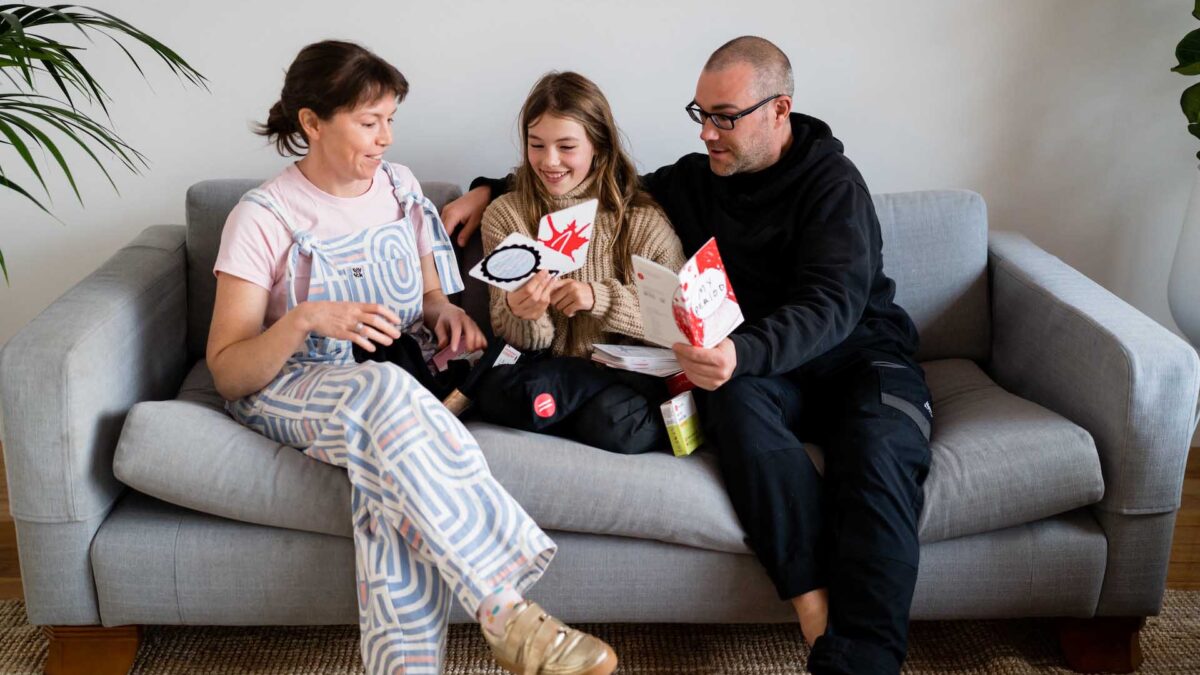Navigating puberty and your child’s first period is no easy feat. Here’s how to prepare yourself so you can talk confidently on the changes that their bodies might go through.
From having the “talk” to busting period myths, it’s hard to know where to start. If your child is coming up to puberty, we’re here with tips on how to talk to your daughter about her first period.
1. Having “the chat”
Break out the chocolate, brew a cuppa and get the conversation flowing. Talk through the physical changes, the cycles, what to expect, how they’ll feel and the mishaps.
Being open and honest about your own experiences will help make a first period much less overwhelming. If you normalise the leaks and accidents that can happen, it will ensure that your child feels less embarrassed about them when they inevitably do.
Be careful how you position the period—the idea of bleeding for a week each month is already an overwhelming concept.
Any trusted male parent figures in your child’s are welcomed to be involved in this chat too. You want your child to know they can speak to you about their period without feeling embarrassed.
2. Choosing period products
Now is also the time to chat through what period products work best for your child. Pads or period undies are usually the best products for first periods as they’re non-invasive and easy to wear.
Be sure you’re making conscious choices when deciding on period products, as the amount of waste generated per period can have a huge environmental impact.
3. Bust those myths
Most people don’t talk about periods very much, which is why there are so many rumours and myths surrounding what to expect. Debunk those myths around cycle length, swimming while on your period and the amount of blood they can expect (hint: It’s not as much as it may feel).
Empower your child to educate themselves about their body. Make sure you touch on the basics of a period:
- How long it’ll last for
- That the blood might be red, brown or even blackish
- It’s not a one-and-done thing (WE WISH!)
4. Prepare a period kit
Most of the time, first periods happen unexpectedly while at school or away from home. To help your child feel ready for any situation, work with them to a prepare a period emergency kit.
Purchase a small bag and stock it with all the emergency supplies they might need or want. This could include:
- Their chosen period product (pack the alternative as well, just in case)
- A clean pair of underwear
- Moist wipes
- A small treat
Tell your child to keep this is in a convenient place like a school locker or bag.
5. Encourage them to have a period buddy
This could be yourself or someone else they trust completely. A period buddy is someone who can discreetly handle the behind the scenes when they need it: an emergency trip to the shops when they’re low on products or some pain relief for when those cramps kick in.
Encourage your child to open the conversation with friends or family they can trust. Talking about our experiences can help them feel like period days are easier to manage.
Excessive period pain can be a sign of endometriosis. Have a chat with your GP if your daughter experiences constant pain.
6. Offer support and understanding
Yes, we know that handling the irritable mood swings and the confusion can be a tough task. But giving your child a bit of space and privacy at this time can make a world of difference.
Offering a cup of tea for when those cramps come or a chocolate for the cravings can really help to show support without making a big deal out of it. Period days are an excellent time to teach the importance of self-care.
How helpful was this article?
Click on a star to rate it!
5 / 5. 1
Be the first to rate this post!
Hey Girls
Related posts
Subscribe
Receive personalised articles from experts and wellness inspiration weekly!


